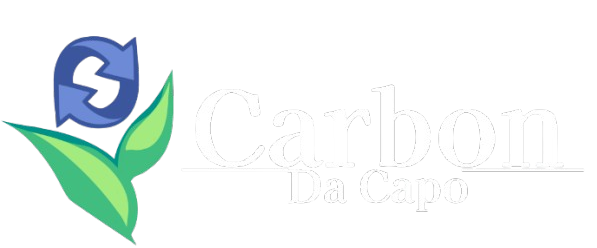
Blog
What You Need To Do For Corporate Reporting

For businesses in North America, corporate reporting has evolved dramatically. It’s no longer only about financial health. Now, Environmental, Social, and Governance (ESG) factors, as well as the UN’s Sustainable Development Goals (SDGs), are shaping the standards of success. Let’s learn what this means for your business, and why keeping up with these evolving standards can set you apart.

Part 1: A General Guide to Reporting Obligations
Financial Reporting: The Basics and Beyond
Financial reporting is central to ensuring corporate transparency. If your business operates in North America, you’re likely familiar with standards set by the U.S. Securities and Exchange Commission (SEC) or the Canadian Securities Administrators (CSA). And as you might know, quarterly and annual reports are required to provide a clear picture of your financial standing. These reports follow frameworks such as GAAP (Generally Accepted Accounting Principles) in the U.S. and IFRS (International Financial Reporting Standards) in Canada. This transparency helps investors, customers, and employees feel confident that your company is in reliable hands.
However, financials are just one part of the story. Today’s stakeholders are looking for more than just profit margins and revenue growth. They’re looking for a complete picture such as your company’s ethics, sustainability efforts, and social impact.

Governance Reporting: Showing Accountability and Transparency
Governance reporting has grown in significance as businesses face increased calls for accountability. Companies are expected to disclose information about their boards, including diversity, decision-making processes, and risk management strategies.
Failing to comply with these regulations can result in fines, legal action, or sanctions from regulatory bodies.
ESG Reporting: A Growing Priority
If you’re hearing more about ESG lately, you’re not alone. Environmental, Social, and Governance (ESG) reporting is reshaping corporate practices across North America, with companies finding that sharing information on their environmental impact, diversity, and ethical practices attracts both customers and investors.
Unlike financial reporting, ESG standards aren’t universally required in North America. However, the Securities and Exchange Commission (SEC) has proposed new rules that would require public companies to disclose their climate-related risks. Canada has also taken steps towards mandatory ESG reporting. The Canadian Securities Administrators (CSA) released guidelines encouraging companies to disclose material ESG risks in their annual filings.

Reporting is becoming increasingly complex. However, as sustainable investing gains popularity, focusing on ESG factors can enhance your competitiveness in the market.
Part 2: The SDGs on Reporting
Why Are the SDGs Relevant for Businesses?
Did you know how SDGs are related to business? As we’ve seen briefly, we now know the companies need to take care of ESG reporting. Next, let’s focus our attention on the SDGs. The SDGs provide a global framework for tackling some of the toughest issues we face. By aligning with the SDGs, companies can make a meaningful impact, which customers, employees, and investors value immensely. When North American businesses integrate these goals into their reporting, it’s a powerful way to signal that they’re committed to more than just profits—they’re invested in a sustainable future for everyone.
Examples of SDG-Aligned Reporting
Let’s take a look at some of the Sustainable Development Goals (SDGs) as examples. SDG 13, which focuses on climate action, encourages companies to take measurable steps by aligning their practices with clear targets. Meanwhile, SDG 12 aims for Responsible Consumption and Production. Manufacturers can contribute to this goal by responsibly sourcing materials and reducing waste. For businesses, these goals are not merely aspirational; they represent strategic imperatives that can drive long-term success and sustainability.
Some North American companies are already setting an impressive standard for SDG-aligned reporting. Here are some examples.

Microsoft: By 2030, Microsoft has pledged to become carbon negative and to replenish more water than it uses. The company is actively integrating SDG principles into its corporate strategy, focusing on sustainability through innovation and responsible resource management.
Coca-Cola: Their 2022 Business & Sustainability Report highlights ambitious goals, including a commitment to sustainable water management and circular economy initiatives. They aim to make 100% of their packaging recyclable by 2025 and to significantly improve water security where they operate.
Facebook: This company is working on SDG5(Gender Equality). They foster networking and professional development for women in the tech industry. The company hosts events that focus on discussions and panels addressing challenges women face in the workforce
The Challenges—and Opportunities—of SDG Reporting
Let’s be honest: reporting on SDGs isn’t always simple. Some goals require extensive data collection, and measuring progress can be tricky.
- Data Collection and Quality: Companies often struggle to gather accurate data for SDG reporting due to inadequate systems and limited resources, leading to reporting gaps.
- Integration into Business Strategy: Aligning sustainability initiatives with core business strategies is challenging, as it requires a cultural shift and long-term commitment.
- Engaging Stakeholders: Effective SDG reporting demands engaging various stakeholders, which can be complex and time-consuming.
- Resource Constraints: Smaller companies frequently face financial and human resource limitations that hinder comprehensive sustainability reporting.
How to Get Started with SDG Reporting
If you’re ready to incorporate the SDGs into your reporting, here are some practical steps:
- Pick Relevant Goals: Start by identifying which SDGs align with your company’s mission and values.
- Set Clear Targets: Set achievable, specific targets for each SDG, making it easy to track and report your progress.
- Share Your Story: Keep your stakeholders in the loop by publishing regular updates. Share your wins and challenges to build trust.
- Engage Your Audience: Involve your employees, customers, and even investors in your journey.

In Conclusion
The landscape of corporate reporting in North America is shifting. And companies that embrace new standards are setting themselves up for long-term success. From financial stability to sustainable impact, the way your business reports its efforts can define its future. Moreover, working on SDGs helps build trust, shows accountability, and provides inspiration for others in the industry.
Take that step forward! However, for small and medium-sized enterprises, navigating reporting requirements can be challenging. If you have any questions, feel free to reach out! At Carbon Da Capo, we’re here to help you with your ESG initiatives and provide guidance on how to effectively approach reporting. Additionally, we can support your sustainability efforts through carbon credits. Let’s ensure we stay aligned with the latest trends in corporate reporting together!
